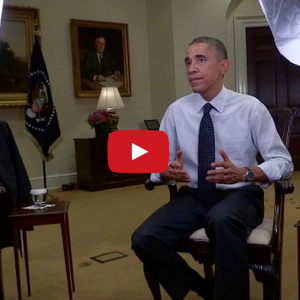Last week President Obama entered the Net Neutrality fray. He did so forcefully and inartfully, interjecting his views late in a months-long period of complex discussions. And he did so with the sophistication of an outsider to these discussions, with a superficial understanding of the issues and a simplistic approach to addressing them. For the President, it seems, core telecommunications policy issues are a political football, to be reduced to populist terms and scrimmaged over for a few yards of political gain. But these issues present complex technical, legal, and economic issues that cannot – and should not – be reduced to mere political terms. They affect an industry of critical economic and social importance; one that makes up a significant portion of GDP and that contributes hundreds of billions of dollars of private investment annually; and one that is of great importance to the modern democratic state.
The problematics of the President’s statement are clear to all but the most enthusiastic advocates of regulation. Indeed, in the days following the President’s statement, both The Washington Post and Vox.com – publications that have offered stalwart support for strong network neutrality regulation – published articles demonstrating the problems of the President’s approach. Brian Fung wrote in the Washington Post’s The Switch that the President’s statement had “undermined weeks of work” by the Federal Communications Commission to craft a workable approach to Network Neutrality. And Timothy Lee, writing for Vox.com, argued that the focus on “reclassification” – the approach to network neutrality advocated for by the President – misses the “substantive questions about what network neutrality rules should look like.”
These “substantive questions” have dogged the Commission in its decade-long efforts to craft Net Neutrality rules – and inattention to them has led to both previous attempts being thrown out by the courts. This time around, Chairman Wheeler is working diligently with Commission staff to make sure that whatever the Commission does is likely to survive – and perhaps not even attract – judicial challenge.
This is a challenging proposition. “Reclassifying” Internet Service Providers as “Title II” services triggers myriad regulatory requirements. (“Title II” refers to the portion of the Communications Act used for regulating telephone companies.) While the FCC has the power to forego from applying all of these requirements, there is disagreement and confusion over which should or should not apply, as well as their collateral effects. For instance, some advocates for reclassification (such as the interest group that calls itself Free Press) argue that Sections 201 and 202, the foundational provisions of Title II, should be the basis for FCC regulation of the Internet; others (such as Representative Henry Waxman) have argued that the FCC should not use Sections 201 and 202. Other sections of Title II could have unintended (and undesirable) consequences, such as subjecting Internet service to state and federal universal service taxes, or giving the FCC power to regulate every service offered over the Internet or even the design of devices that connect to the Internet.
In other words, if the Commission does reclassify the Internet as a Title II service, it will need to figure out how dozens of complicated legal and technical rules would apply to the Internet and carefully trim them back to only address the relevant Net Neutrality concerns. Not only is this challenging: it might not be possible. Federal agencies like the FCC can only do that which federal law empowers them to do. If the FCC needs to trim back the requirements of Title II too far – so far that it looks like the FCC is no longer using its power in the way envisioned by the Communications Act – the courts could reject the FCC’s Net Neutrality rules for a third time.
These are some of the reasons that critics of the “reclassification” approach (myself included) are against it. Too much could go wrong with it, and it almost certainly would end up back in court where the FCC would face the very real risk of having its Net Neutrality rules rejected for the third time. Why should the FCC subject its rules to these risks (we critics ask) when there is an alternative approach: last January the courts blessed the FCC’s use of another part of the Communications Act, Section 706, to establish Net Neutrality rules without undergoing reclassification.
Regardless the merits of reclassification, these concerns demonstrate why we have an FCC. The FCC is an expert agency that is not beholden to the political process. Its leaders are not elected, precisely so that they have the freedom to consider the complex technical, legal, and economic factors that go into a good communications policy. This stands in stark contrast to the President who, a week after a resounding defeat at the midterm elections, overtly sought to reenergize his political base with announcements related to Net Neutrality, climate change, and immigration policy. None of these should be political issues. In the case of Net Neutrality, it is simply tragic to see the President so carelessly undermine dedicated efforts of the FCC to craft good policy so that he can win a few cheap political points.

